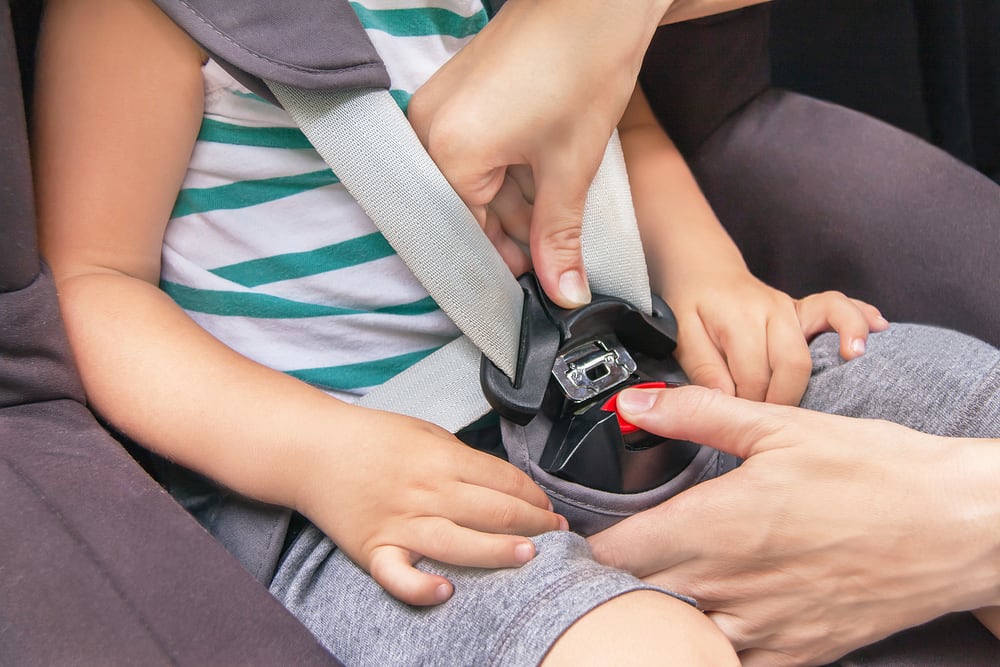

Child seat safety laws are in place to protect your children. Because of their size and vulnerability, children are not adequately protected by using the same restraint systems that adults use. The use of a child safety seat is mandated by law in Kansas, and if you don’t use one, you are not just violating the law, you are endangering your child. Obtain and use a child safety seat so that you can avoid legal penalties and ensure that your child is protected.
Summary of Kansas child seat safety laws
In Kansas, the law as stated is very brief and to the point. All children between the ages of 4 and 7 have to be secured in a child booster seat, unless they weigh more than 80 pounds and/or are taller than 4’9”. That’s all you need to be in compliance. The state also offers the following recommendations – these are not laws, but common-sense suggestions to follow when securing your child.
Any child under the age of one should ride in a car seat facing rear.
Children ages one to three should be kept in rear-facing child seats for as long as is practical. Ideally, the child will use the rear-facing seat until he or she reaches or exceeds the weight and height limit identified by the manufacturer of the child seat.
When a child outgrows the rear-facing child seat, he or she can use a front-facing seat with a harness.
Children ages 8-13 do not require a car seat but should still use a booster seat until they can fit properly into an adult seat belt. Older children fall under the same laws as adults, and must buckle up regardless of where they are seated in the vehicle.
Penalties
If you violate the child seat safety laws in Kansas, you will be subject to a $60 fine. If you can prove that you have obtained a child safety seat, then the fine will be waived, but you will still be assessed court costs.
Don’t risk a fine. And more importantly, don’t take chances with your child’s safety. Make sure they are secured in accordance with the law.



